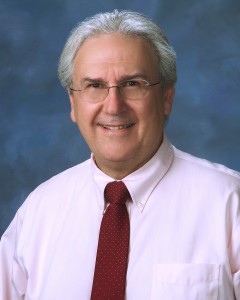NSU Newsroom
SharkBytes
Horizons
This version of NSU News has been archived as of February 28, 2019. To search through archived articles, visit nova.edu/search. To access the new version of NSU News, visit news.nova.edu.
This version of SharkBytes has been archived as of February 28, 2019. To search through archived articles, visit nova.edu/search. To access the new version of SharkBytes, visit sharkbytes.nova.edu.
Nova Southeastern University Receives up to $4.3 Million for Marine Industry Safety Training in Gulf Coast and Virginia
NIH Grant to Fund NSU College of Osteopathic Medicine’s Project SEAMIST
FT. LAUDERDALE-DAVIE, Fla. – The Deepwater Horizon (BP) oil spill on April 20, 2010 was the largest disaster of its kind in history. Its negative impact on the economy ran in the tens of billions of dollars and caused irreversible damage to the environment.
To help preventable disasters like this from occurring again, the Institute for Disaster and Emergency Preparedness at Nova Southeastern University’s (NSU) College of Osteopathic Medicine created Project SEAMIST (South East Area Marine Industry Safety Training) in 2010, which was funded by the National Institute of Environmental Health Sciences (NIEHS) of the National Institutes of Health.
“Project SEAMIST provides training so that vessels and seaports can function safely and efficiently, supporting an important economic component of Florida and the Gulf Coast,” said Stephen Grant, Ph.D., primary investigator of the grant and associate professor of public health, NSU’s College of Osteopathic Medicine.
As a result of its initial successes, the NIEHS has awarded an initial $590,000 to NSU’s Institute for Disaster and Emergency Preparedness and recommended a total award of $4,289,274 over a five-year period (2015-20) to continue to the program and enhance its offerings.
During the first five years (2010-15) of Project SEAMIST, the program developed a set of safety training curricula specifically targeting the unique hazards of the marine industry and environment. It provided 120 training sessions to nearly 3,000 workers throughout the Gulf Coast states (Alabama, Florida, Louisiana and Mississippi) and Virginia, including law enforcement officers, port workers, safety trainers, vessel operators and crew members, cruise ship employees and medical personnel.
“The new funding will allow us to continue to provide this training, to evaluate and upgrade our training materials, to expand to new areas of industry, such as ship building, and to deliver our training in multiple languages and online,” said Dr. Grant. “The largest new initiative is to develop and provide training specifically for marine disaster responders by and helping train workers and port security in the maritime industry how to deal with oil spills to both protect themselves and the environment.”
This new addition to Project SEAMIST will be spearheaded by a co-collaborator, Kristi Messer, M.S.W., M.P.H., assistant project manager, Institute for Disaster and Emergency Preparedness and assistant professor, Master of Public Health Program and Disaster and Emergency Preparedness, NSU College of Osteopathic Medicine. Messer developed the complementary Hazardous Material Maritime Industry Response Training Safety Initiative (HasMIRTSI) training initiative to enable workers in the industry to reduce injuries and death related to all disasters and emergencies involving hazardous materials.
Research reported in this publication was supported by the National Institute of Environmental Health Sciences of the National Institutes of Health under Award Number U45ES019350. The content is solely the responsibility of the authors and does not necessarily represent the official views of the National Institutes of Health.
# # #
About NSU’s College of Osteopathic Medicine: The mission of the College of Osteopathic Medicine is to provide learner-centered education, both nationally and internationally, for osteopathic medical students, postgraduate trainees, and other professionals. Through its inter-professional programs, the college prepares competent and compassionate lifelong learners; supports research, scholarly activity, and community service; and advocates for the health and welfare of diverse populations, including the medically underserved. Please visit http://osteopathic.nova.edu/ for more information.
About Nova Southeastern University (NSU): Located in beautiful Fort Lauderdale, Florida, Nova Southeastern University (NSU) is a dynamic research institution dedicated to providing high-quality educational programs at the undergraduate, graduate, and first-professional degree levels. A private, not-for-profit institution with more than 24,000 students, NSU has campuses in Fort Lauderdale, Fort Myers, Jacksonville, Miami, Miramar, Orlando, Palm Beach, and Tampa, Florida, as well as San Juan, Puerto Rico, while maintaining a presence online globally. For more than 50 years, NSU has been awarding degrees in a wide range of fields, while fostering groundbreaking research and an impactful commitment to community. Classified as a research university with “high research activity” by the Carnegie Foundation for the Advancement of Teaching, NSU is 1 of only 37 universities nationwide to also be awarded Carnegie’s Community Engagement Classification, and is also the largest private, not-for-profit institution in the United States that meets the U.S. Department of Education’s criteria as a Hispanic-serving Institution. Please visit http://www.nova.edu/ for more information.
Media Contact:
Jeremy Katzman, M.B.A., APR | Office of Public Affairs
954-262-5408 (office)
954-661-7000 (cell)
j.katzman@nova.edu
